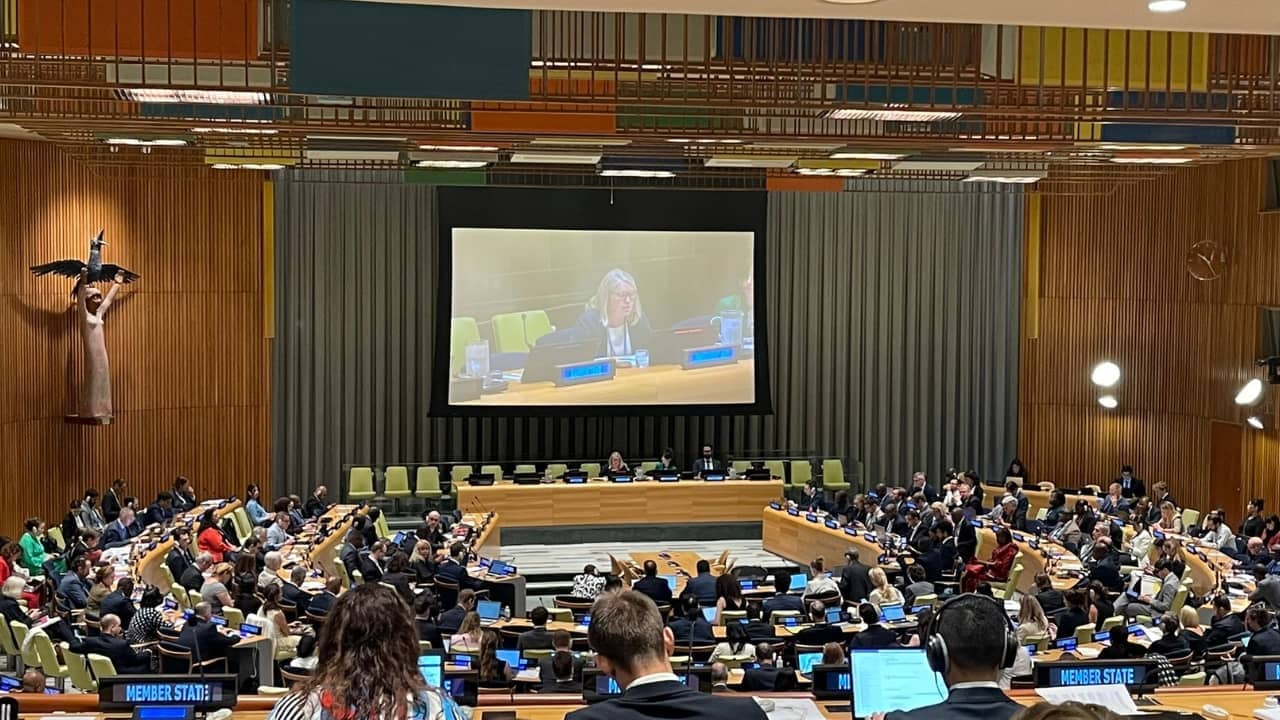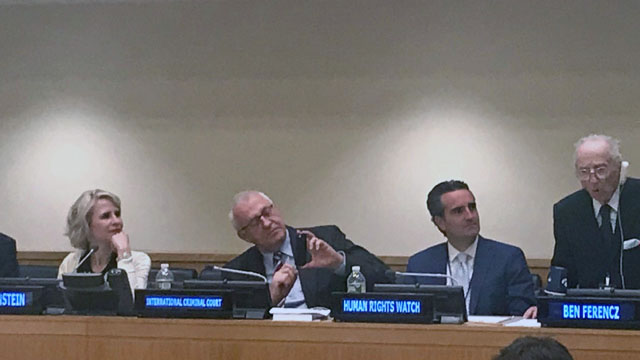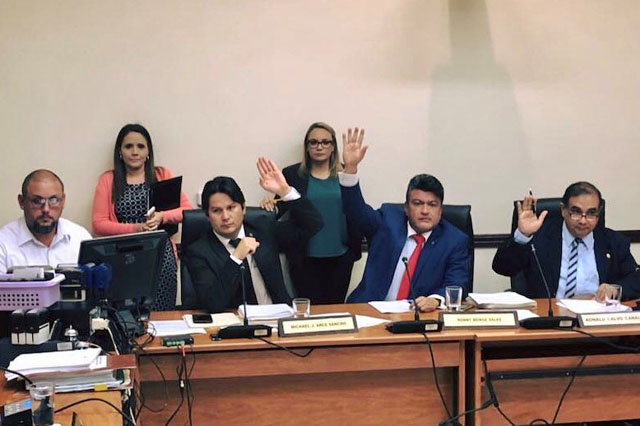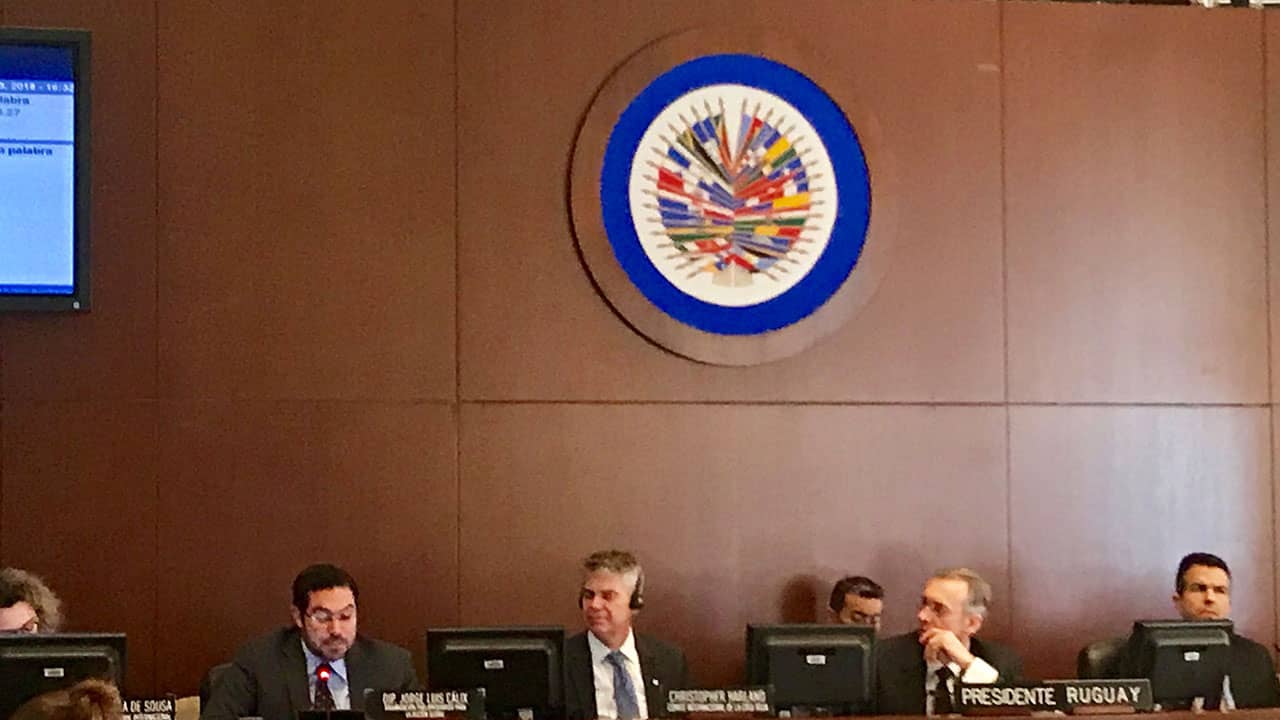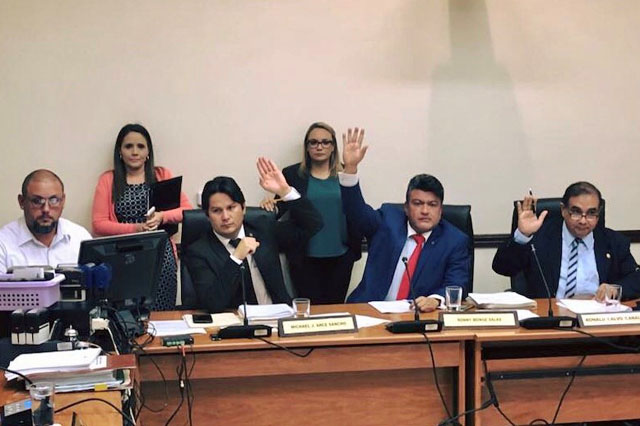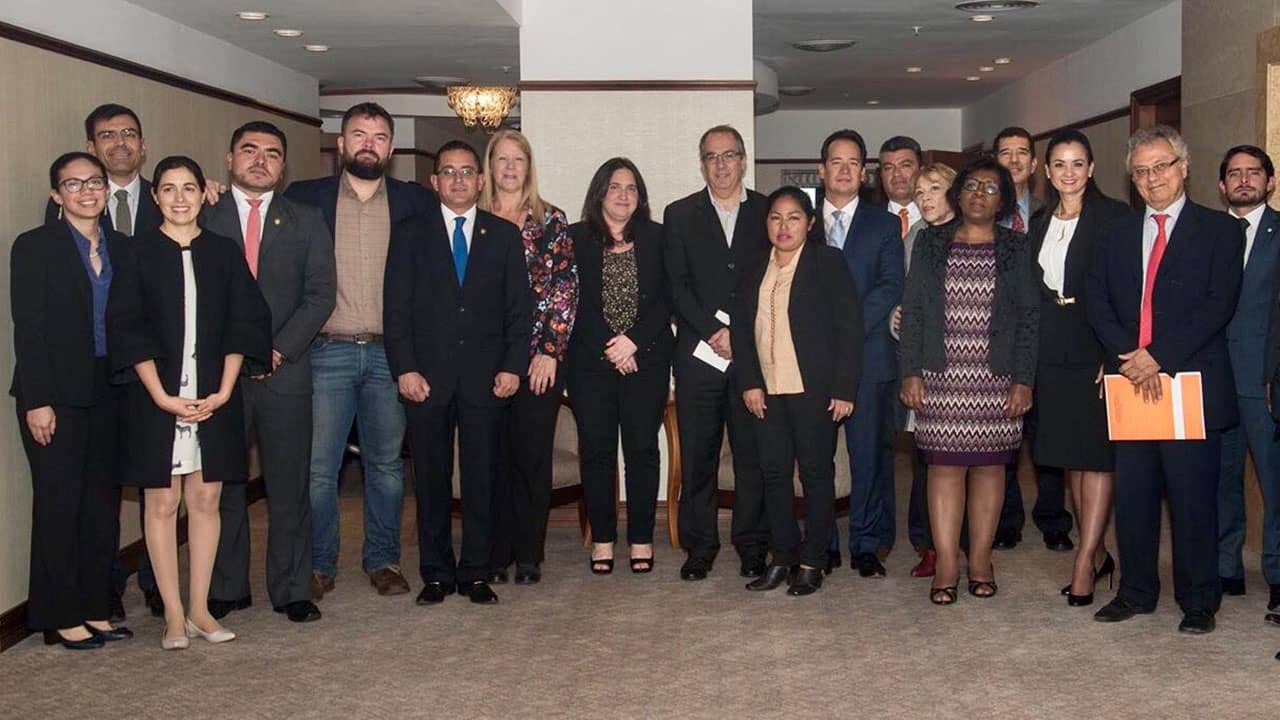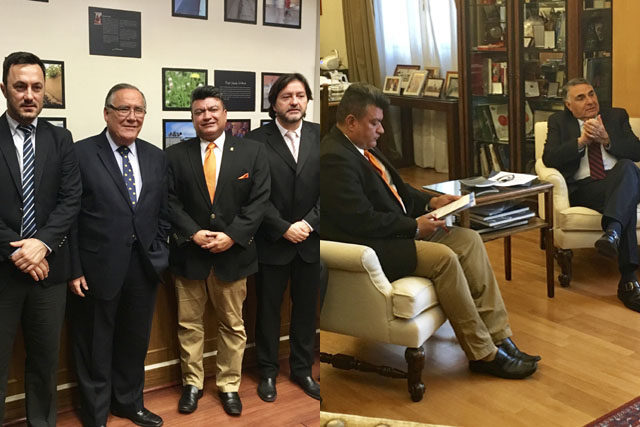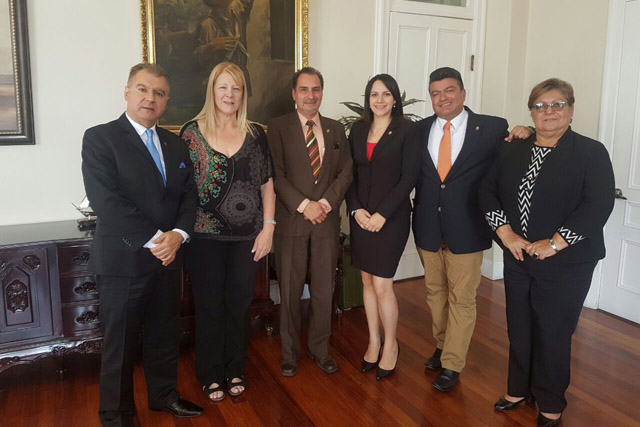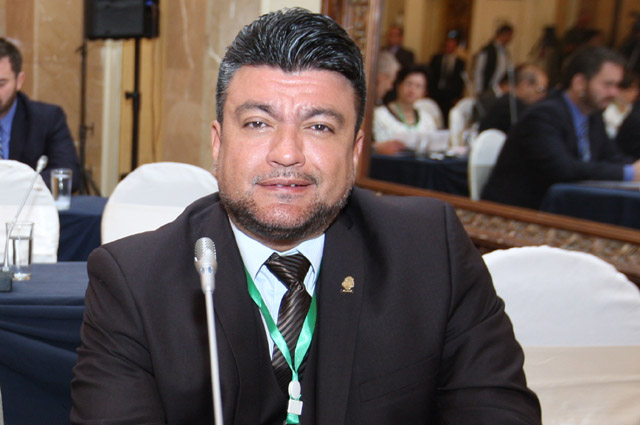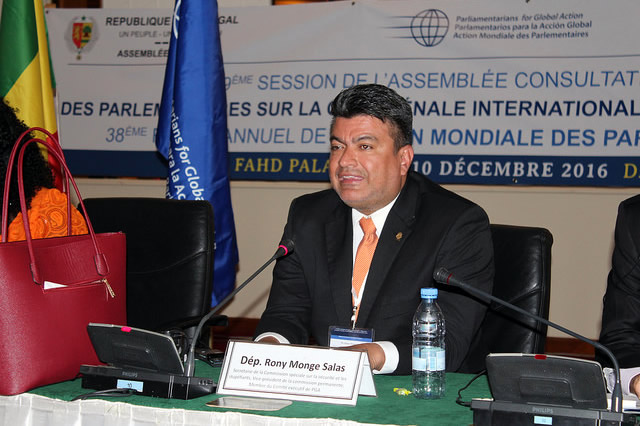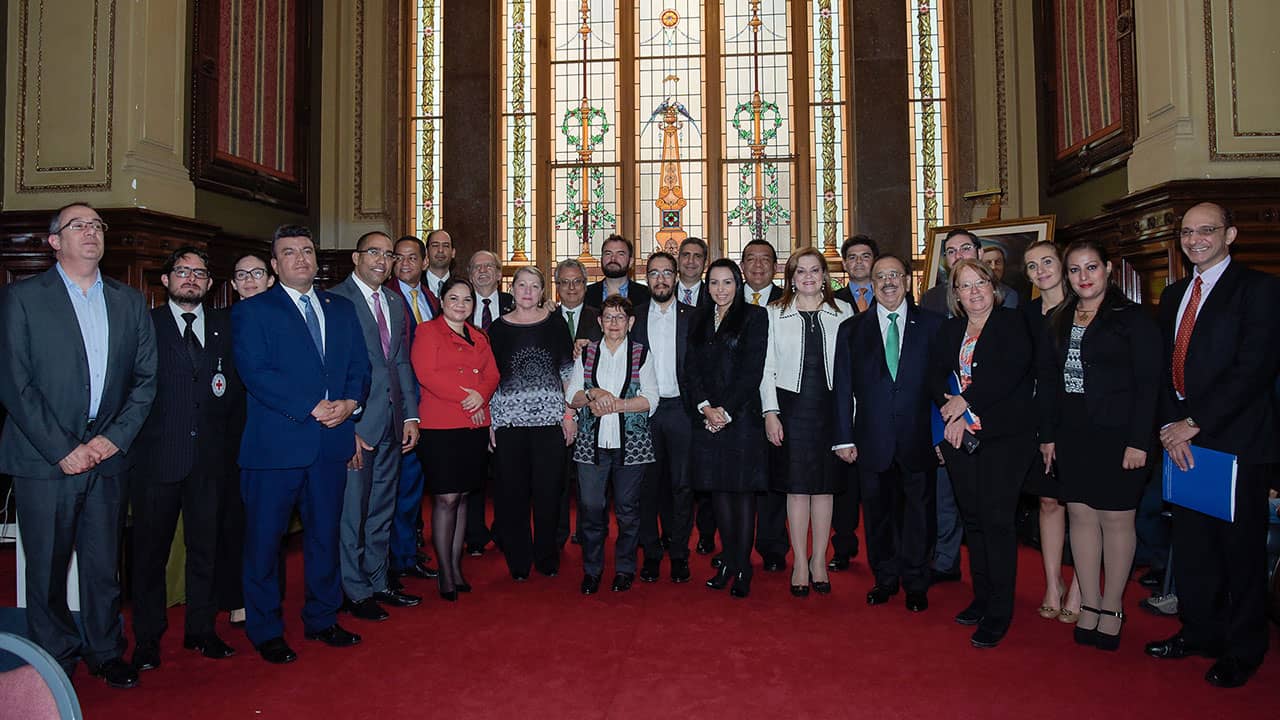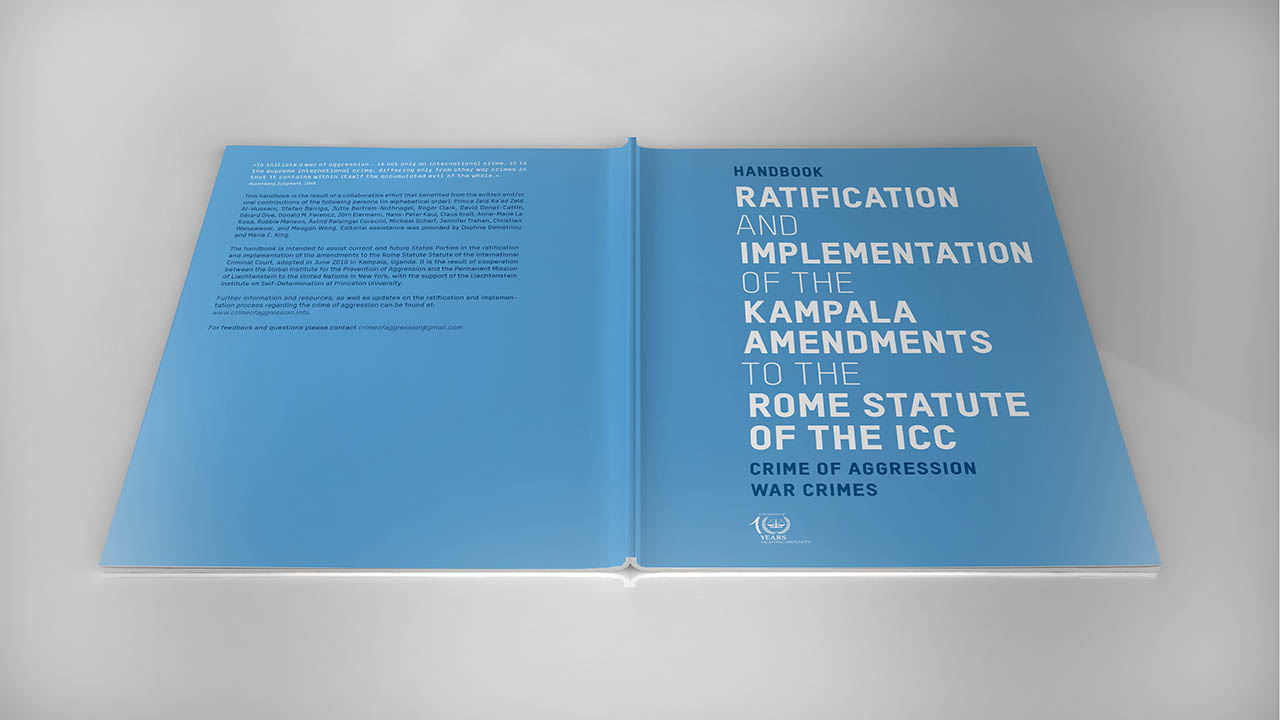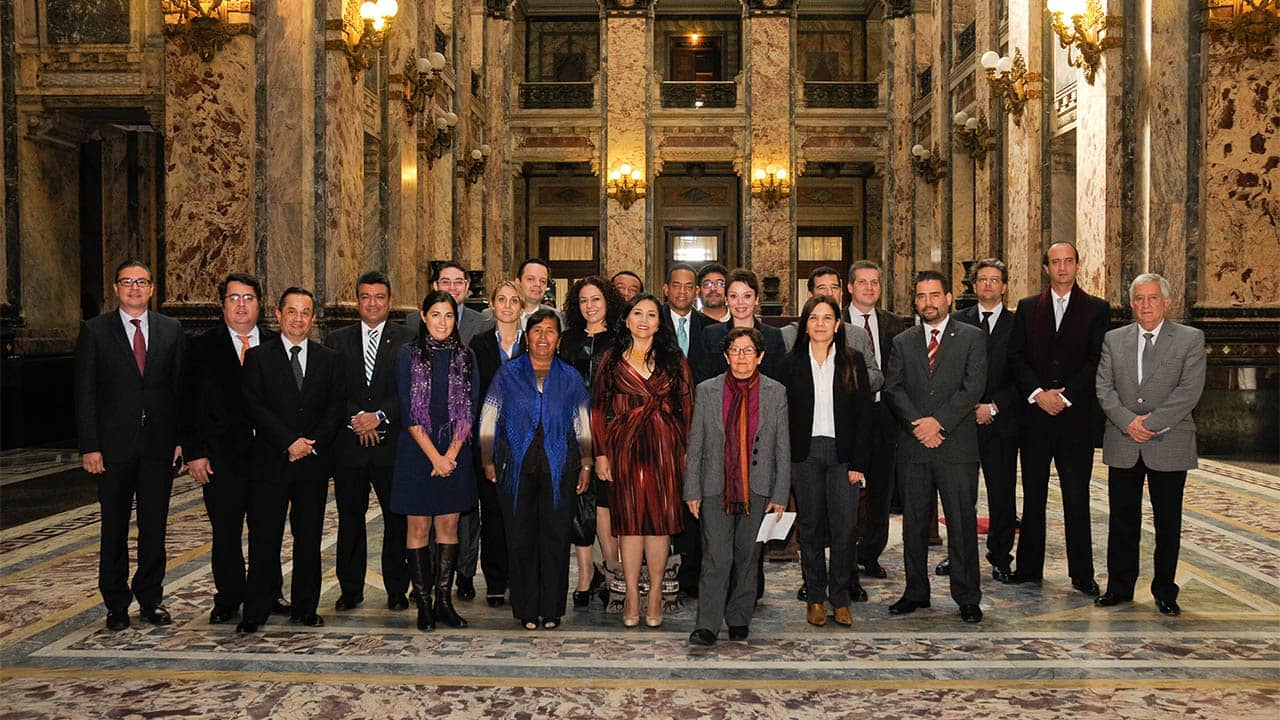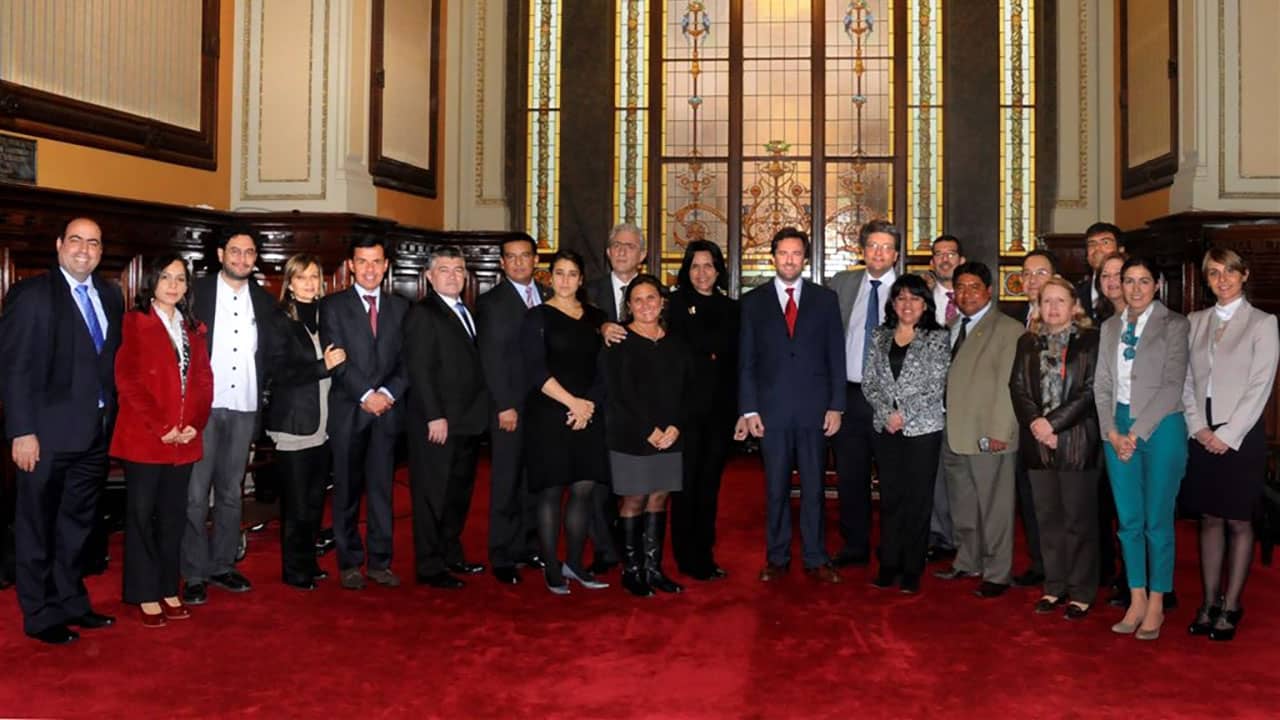PGA has a long and solid partnership history with parliamentarians from Costa Rica, a state party to the Rome Statute, which has also ratified the Kampala Amendments. Currently PGA’s work focuses on the full implementation of the Rome Statute and strengthening the cooperation of Costa Rica with the Court.
Rome Statute
The Republic of Costa Rica signed the Rome Statute on 7 October 1998 and deposited its instrument of ratification on 7 June 2001.
Kampala Amendments of 2010
Costa Rica was the 22nd State to ratify the Kampala Amendments to the Rome Statute of the International Criminal Court. It deposited the instrument of ratification on February 5, 2015, after the plenary of the Legislative Assembly had approved the instrument of ratification on 11 November 2014.
This development was, in no small part, thanks to the endless efforts of Dip. Alfaro Zamora, who, as President of the International Relations and Foreign Trade Committee, was one of the most active promoters of the Bill to ratify the Kampala Amendments in the Committee. After the 2014 parliamentary elections, the newly elected Dip. Ronny Monge and Dip. Gonzalo Ramirez, actively supported the inclusion of the Bill as a priority item in the plenary agenda. Please click here to learn more.
Status on the domestic implementation of the Rome Statute
The Congress of Costa Rica approved an amendment to the criminal code (Law 8272) in May 2003, which included an article referring to the crimes embodied in the international treaties that have been ratified by Costa Rica, including the Rome Statute of the ICC. A separate law including all crimes under the Rome Statute and complementarity provisions has been forwarded to Congress, but no decision on this matter has been taken so far. There is no legislation on cooperation with the ICC.
In June 29th, 2009, Bill No 16272 was tabled in the Legislative Assembly of Costa Rica. This Bill includes a definition of Genocide, Crimes against Humanity, War Crimes and some of the general of law included in the Rome Statute.
At the 2010 Kampala Review Conference of the Rome Statute, Costa Rica pledged to work on ensuring the adoption of legislation that implements the Rome Statute at the domestic level.
As of September 2015, a Bill to amend the Criminal Code is under discussion at the parliament, however, as it includes other topics of internal nature, it is not expected to be voted soon.
Agreement on Privileges and Immunities of the Court (APIC)
Costa Rica signed the APIC on 16 December 2002 and ratified it on 28 April 2011.
Additional Agreements
Costa Rica publicly rejected to sign a Bilateral Non-Surrender Agreement with the United States, regarding the US national´s surrender to the ICC.
ICC Progress and PGA Action
After the request of the PGA national group, the president of Costa Rica requested the bill on cooperation with the ICC presented by our member to be discussed at the extraordinary session that will last until April 2016
In June, 2015, PGA member, Dip. Ronny Monge submitted a bill to create a cooperation mechanism with the ICC. The will is being discussed in the Security Committee.
In March 2015, following a Parliamentary Workshop in Santo Domingo, Costa Rican MPs participating in such event, committed to the following:
- Amend the Criminal Code to achieve full implementation of the Rome Statute in the domestic legislation regarding principles of international law and crimes under the jurisdiction of the ICC, including the Crime of Aggression.
- Promote the cooperation bill already introduced in the previous legislature and amend it to include new elements and best practice regarding States cooperation with the ICC.
- Request the government to promote the ratification and implementation of the Rome Statute as well as political support for the International Criminal Court in all multilateral negotiations, especially with countries in Latin America.
PGA started working with new members of parliament given the change of the parliamentarians on May 2014 after the elections, Dip. Ronny Monge and Dip. Gonzalo Ramirez, through their participation in the Sub Regional Working Group in Uruguay in 2014 and in the Dominican Republic in 2015 to ensure the adoption of a Cooperation Bill in Parliament.
After Dip. Oscar Alfaro Zamora, former President of the Foreign Affairs Committee of the Legislative Assembly of Costa Rica, participated in 2013 in the Sub-Regional Working Group and in PGA’s 35th Annual Forum, he requested PGA technical assistance in the drafting of a cooperation law that would be supported by the Government and that was presented in the Legislative Assembly by April 2014. PGA provided a customized cooperation bill based on our law model.
Dip. Ronny Monge Salas participated in the Eight session of The Consultative Assembly of Parliamentarians for the International Criminal Court and the Rule of Law, held in Rabat, where the role of members of Parliament in bringing political support for the international criminal justice system was the central topic.
Dip. Ronny Monge and Dip. Gonzalo Ramirez participated in the Sub-Regional Working Group on Challenges for the Effectiveness of the Rome Statute system in the Americas, held in the Chamber of Deputies of Uruguay on 27- 28 August 2014, where they reaffirmed their commitment to continue promoting the Kampala Amendments Bill.
Dip. Oscar Gerardo Alfaro Zamora, assisted the 35th Annual Parliamentary Forum held in the Parliament of Colombia, Bogotá, 9 and 10 December, 2013 and reaffirmed his willingness to present the implementation of the ICC (core crimes and cooperation) at the beginning of 2014.
Dip. Oscar Gerardo Alfaro Zamora assisted the Sub-Regional Working Group on Challenges for the Effectiveness of the Rome Statute system in the Americas, held in the Parliament of Uruguay, Montevideo, in September 16-17, 2013.
Dip. Ricardo Aime Toledo Carranza assisted PGA’s 26th Annual Forum: Consultative Assembly of Parliamentarians for the ICC and the Rule of Law - III session, held in the Parliament of New Zealand, Wellington in December 6-7 2004.
Dip. Gerardo González Esquivel assisted the Parliamentarians and International Cooperation: 25th Anniversary Tribute & II Session of the Consultative Assembly of Parliamentarians for the ICC and the Rule of Law, held in the United Nations Headquarters, United States, New-York in September 12-13 2003.
Further relevant information
As a member of the Organization of American States, Costa Rica has supported the promotion of the International Criminal Court through the adoption of an annual resolution by the General Assembly of the OAS, as well as by the holding of a annual working meeting of high level within the Political and Juridical Affairs Committee of the OAS. PGA members have been invited at numerous occasions to this meeting. For more information on the work of PGA within the OAS, click here
Human Rights Council Universal Periodic Review
Within the UN Human Rights Council Universal Periodic Review (UPR), Costa Rica was reviewed during the 19th session of the UPR in 2014 where it received 2 recommendations to fully implement the Rome Statue, which it accepted. During the UNHRC-UPR 1st cycle, Costa Rica received no recommendations related to the Rome Statute and has been a staunch promoter of the universality of the Rome Statute. It has recommended to 2 states (Guinea and the United States) to consider the ratification of the Rome Statute as a human rights objective.




